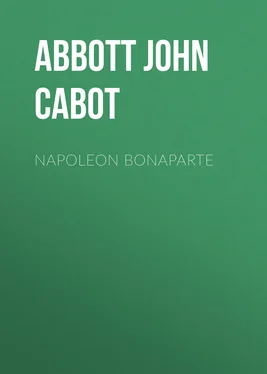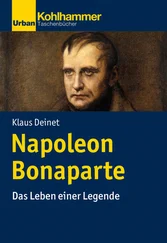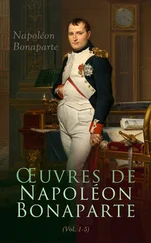John Abbott - Napoleon Bonaparte
Здесь есть возможность читать онлайн «John Abbott - Napoleon Bonaparte» — ознакомительный отрывок электронной книги совершенно бесплатно, а после прочтения отрывка купить полную версию. В некоторых случаях можно слушать аудио, скачать через торрент в формате fb2 и присутствует краткое содержание. Жанр: Биографии и Мемуары, История, foreign_edu, foreign_antique, foreign_prose, на английском языке. Описание произведения, (предисловие) а так же отзывы посетителей доступны на портале библиотеки ЛибКат.
- Название:Napoleon Bonaparte
- Автор:
- Жанр:
- Год:неизвестен
- ISBN:нет данных
- Рейтинг книги:5 / 5. Голосов: 1
-
Избранное:Добавить в избранное
- Отзывы:
-
Ваша оценка:
- 100
- 1
- 2
- 3
- 4
- 5
Napoleon Bonaparte: краткое содержание, описание и аннотация
Предлагаем к чтению аннотацию, описание, краткое содержание или предисловие (зависит от того, что написал сам автор книги «Napoleon Bonaparte»). Если вы не нашли необходимую информацию о книге — напишите в комментариях, мы постараемся отыскать её.
Napoleon Bonaparte — читать онлайн ознакомительный отрывок
Ниже представлен текст книги, разбитый по страницам. Система сохранения места последней прочитанной страницы, позволяет с удобством читать онлайн бесплатно книгу «Napoleon Bonaparte», без необходимости каждый раз заново искать на чём Вы остановились. Поставьте закладку, и сможете в любой момент перейти на страницу, на которой закончили чтение.
Интервал:
Закладка:
Napoleon now entered Milan in triumph. He remained there ten days, busy apparently every hour, by day and by night, in re-organizing the political condition of Italy. The serious and religious tendencies of his mind are developed by the following note, which four days after the battle of Marengo, he wrote to the Consuls in Paris: "To-day, whatever our atheists may say to it, I go in great state to the To Deum which is to be chanted in the Cathedral of Milan. * * The Te Deum , is an anthem of praise, sung in churches on occasion of thanksgiving. It is so called from the first words "Te Deum laudamus," Thee God we praise.
An unworthy spirit of detraction has vainly sought to wrest from Napoleon the honor of this victory, and to attribute it all to the flank charge made by Kellerman. Such attempts deserve no detail reply. Napoleon had secretly and suddenly called into being an army, and by its apparently miraculous creation had astounded Europe. He had effectually deceived the vigilance of his enemies, so as to leave them entirely in the dark respecting his point of attack. He had conveyed that army with all its stores, over the pathless crags of the Great St. Bernard. Like an avalanche he had descended from the mountains upon the plains of startled Italy. He had surrounded the Austrian hosts, though they were doubled his numbers, with a net through which they could not break. In a decisive battle he had scattered their ranks before him, like chaff by the whirlwind. He was nobly seconded by those generals whom his genius had chosen and created. It is indeed true, that without his generals and his soldiers he could not have gained the victory. Massena contributed to the result by his matchless defense of Genoa; Moreau, by holding in abeyance the army of the Rhine; Lannes, by his iron firmness on the plain of Montebello; Desaix, by the promptness with which he rushed to the rescue, as soon as his car caught the far-off thunders of the cannon of Marengo; and Kellerman, by his admirable flank charge of cavalry. But it was the genius of Napoleon which planned the mighty combination, which roused and directed the enthusiasm of the generals, which inspired the soldiers with fearlessness and nerved them for the strife, and which, through these efficient agencies, secured the astounding results.
Napoleon established his triumphant army, now increased to eighty thousand men, in the rich valley of the Po. He assigned to the heroic Massena the command of this triumphant host, and ordering all the forts and citadels which blocked the approaches from France to be blown up, set out, on the 24th of June, for his return to Paris. In re-crossing the Alps, by the pass of Mt. Cenis, he met the carriage of Madame Kellerman, who was going to Italy to join her husband. Napoleon ordered his carriage to be stopped, and alighting, greeted the lady with great courtesy, and congratulated her upon the gallant conduct of her husband at Marengo. As he was riding along one day, Bourrienne spoke of the world-wide renown which the First Consul had attained.
"Yes," Napoleon thoughtfully replied. "A few more events like this campaign, and my name may perhaps go down to posterity."
"I think," Bourrienne rejoined, "that you have already done enough to secure a long and lasting fame."
"Done enough!" Napoleon replied. "You are very good! It is true that in less than two years I have conquered Cairo, Paris, Milan. But were I to die to-morrow, half a page of general history would be all that would be devoted to my exploits."
Napoleon's return to Paris, through the provinces of France, was a scene of constant triumph. The joy of the people amounted almost to frenzy. Bonfires, illuminations, the pealing of bells, and the thunders of artillery accompanied him all the way. Long lines of young maidens, selected for their grace and beauty, formed avenues of loveliness and smiles through which he was to pass, and carpeted his path with flowers. He arrived in Paris at midnight the 2d of July, having been absent but eight weeks.
The enthusiasm of the Parisians was unbounded and inexhaustible. Day after day, and night after night, the festivities continued. The Palace of the Tuileries was ever thronged with a crowd, eager to catch a glimpse of the preserver of France. All the public bodies waited upon him with congratulations. Bells rung, cannon thundered, bonfires and illuminations blazed, rockets and fire-works, in meteoric splendor filled the air, bands of music poured forth their exuberant strains, and united Paris, thronging the garden of the Tuileries and flooding back into the Elysian Fields, rent the heavens with deafening shouts of exultation. As Napoleon stood at the window of his palace, witnessing this spectacle of a nation's gratitude, he said, "The sound of these acclamations is as sweet to me, as the voice of Josephine. How happy I am to be beloved by such a people." Preparations were immediately made for a brilliant and imposing solemnity in commemoration of the victory. "Let no triumphal arch be raised to me," said Napoleon. "I wish for no triumphal arch but the public satisfaction."
It is not strange that enthusiasm and gratitude should have glowed in the ardent bosoms of the French. In four months Napoleon had raised France from an abyss of ruin to the highest pinnacle of prosperity and renown. For anarchy he had substituted law, for bankruptcy a well-replenished treasury, for ignominious defeat resplendent victory, for universal discontent as universal satisfaction. The invaders were driven from France, the hostile alliance broken, and the blessings of peace were now promised to the war-harassed nation.
During this campaign there was presented a very interesting illustration of Napoleon's wonderful power of anticipating the progress of coming events. Bourrienne, one day, just before the commencement of the campaign, entered the cabinet at the Tuileries, and found an immense map of Italy, unrolled upon the carpet, and Napoleon stretched upon it. With pins, whose heads were tipped with red and black sealing-wax, to represent the French and Austrian forces, Napoleon was studying all the possible combinations and evolutions of the two hostile armies. Bourrienne, in silence, but with deep interest, watched the progress of this pin campaign. Napoleon, having arranged the pins with red heads, where he intended to conduct the French troops, and with the black pins designating the point which he supposed the Austrians would occupy, looked up to his secretary, and said:
"Do you think that I shall beat Melas?"
"Why, how can I tell!" Bourrienne answered.
"Why, you simpleton," said Napoleon, playfully; "just look here. Melas is at Alexandria, where he has his head-quarters. He will remain there until Genoa surrenders. He has in Alexandria his magazines, his hospitals, his artillery, his reserves. Passing the Alps here," sticking a pin into the Great St. Bernard, "I fall upon Melas in his rear; I cut off his communications with Austria. I meet him here in the valley of the Bormida." So saying, he stuck a red pin into the plain of Marengo.
Bourrienne regarded this maneuvering of pins as mere pastime. His countenance expressed his perfect incredulity. Napoleon, perceiving this, addressed to him some of his usual apostrophes, in which he was accustomed playfully to indulge in moments of relaxation, such as, You ninny, You goose; and rolled up the map. Ten weeks passed away, and Bourrienne found himself upon the banks of the Bormida, writing, at Napoleon's dictation, an account of the battle of Marengo. Astonished to find Napoleon's anticipations thus minutely fulfilled, he frankly avowed his admiration of the military sagacity thus displayed. Napoleon himself smiled at the justice of his foresight.
Two days before the news of the battle of Marengo arrived in Vienna, England effected a new treaty with Austria, for the more vigorous prosecution of the war. By this convention it was provided that England should loan Austria ten millions of dollars, to bear no interest during the continuance of the conflict. And the Austrian cabinet bound itself not to make peace with France, without the consent of the Court of St. James. The Emperor of Austria was now sadly embarrassed. His sense of honor would not allow him to violate his pledge to the King of England, and to make peace. On the other hand, he trembled at the thought of seeing the armies of the invincible Napoleon again marching upon his capital. He, therefore, resolved to temporize, and, in order to gain time, sent an embassador to Paris. The plenipotentiary presented to Napoleon a letter, in which the Emperor stated, "You will give credit to every thing which Count Julien shall say on my part. I will ratify whatever he shall do." Napoleon, prompt in action, and uniformed of the new treaty between Ferdinand and George III., immediately caused the preliminaries of peace to be drawn up, which were signed by the French and Austrian ministers. The cabinet in Vienna, angry with their embassador for not protracting the discussion, refused to ratify the treaty, recalled Count Julien, sent him into exile, informed the First Consul of the treat which bound Austria not to make peace without the concurrence of Great Britain, assured France of the readiness of the English Cabinet to enter into negotiations, and urged the immediate opening of a Congress at Luneville, to which plenipotentiaries should be sent from each of the three great contending powers. Napoleon was highly indignant in view of this duplicity and perfidy. Yet, controlling his anger, he consented to treat with England, and with that view proposed a naval armistice , with the mistress of the seas. To this proposition England peremptorily refused to accede, as it would enable France to throw supplies into Egypt and Malta, which island England was besieging. The naval armistice would have been undeniably for the interests of France. But the continental armistice was as undeniably adverse to her interests, enabling Austria to recover from her defeats, and to strengthen her armies. Napoleon, fully convinced that England, in he[r inaccessible position, did not wish for peace, and that her only object, in endeavoring to obtain admittance to the Congress, was that she might throw obstacles in the way of reconciliation with Austria, offered to renounce all armistice with England, and to treat with her separately. This England also refused.
Читать дальшеИнтервал:
Закладка:
Похожие книги на «Napoleon Bonaparte»
Представляем Вашему вниманию похожие книги на «Napoleon Bonaparte» списком для выбора. Мы отобрали схожую по названию и смыслу литературу в надежде предоставить читателям больше вариантов отыскать новые, интересные, ещё непрочитанные произведения.
Обсуждение, отзывы о книге «Napoleon Bonaparte» и просто собственные мнения читателей. Оставьте ваши комментарии, напишите, что Вы думаете о произведении, его смысле или главных героях. Укажите что конкретно понравилось, а что нет, и почему Вы так считаете.












